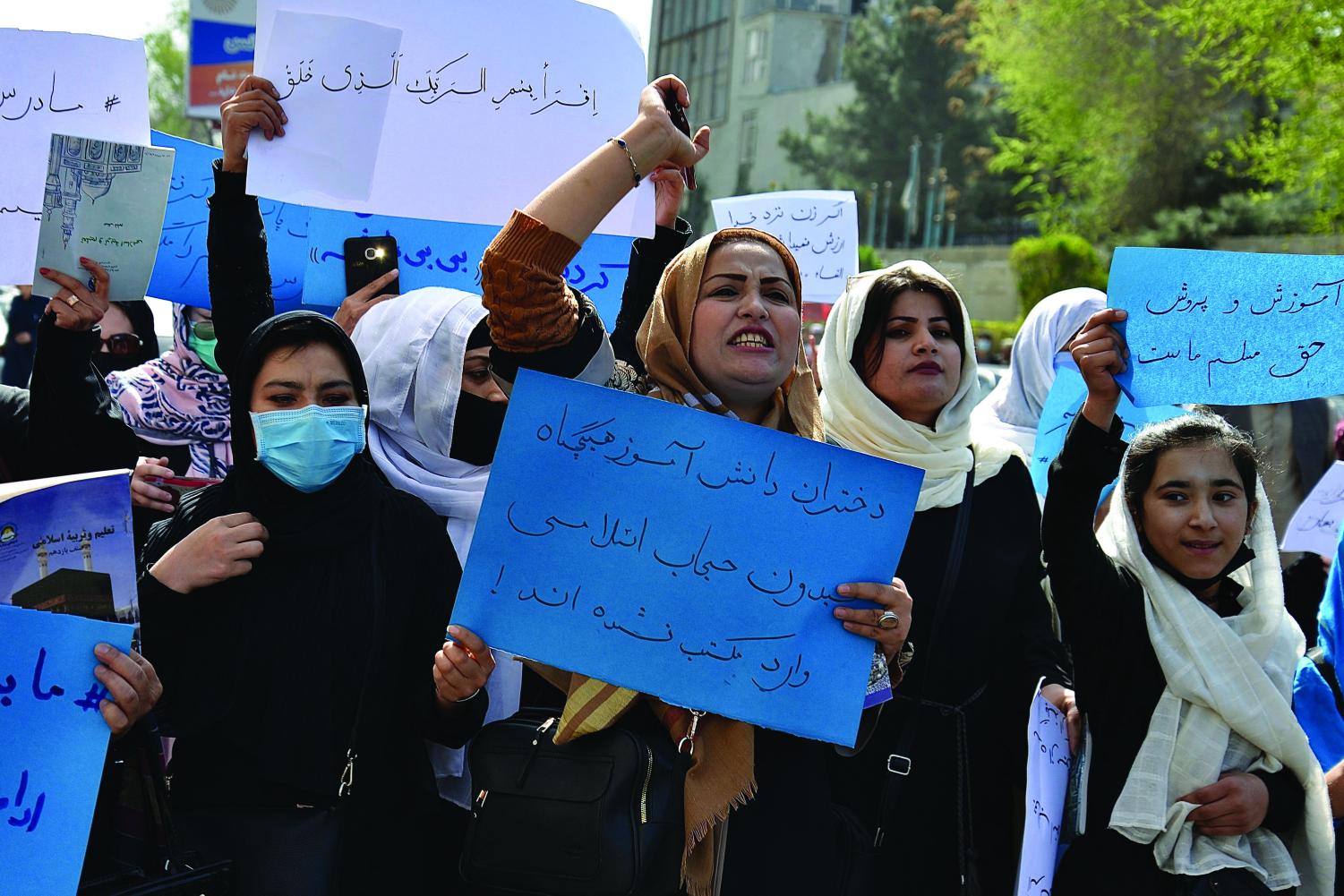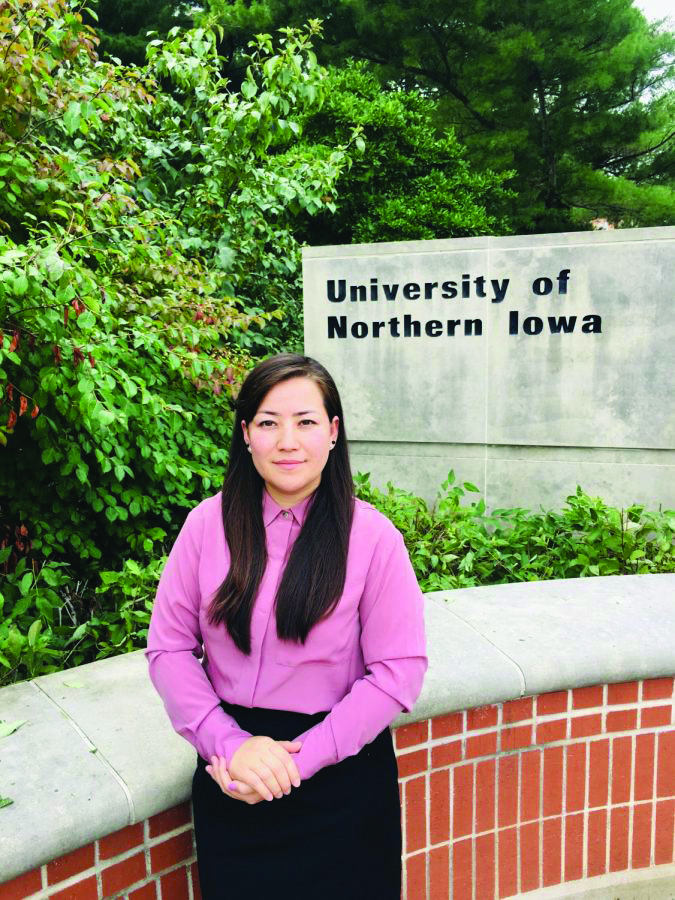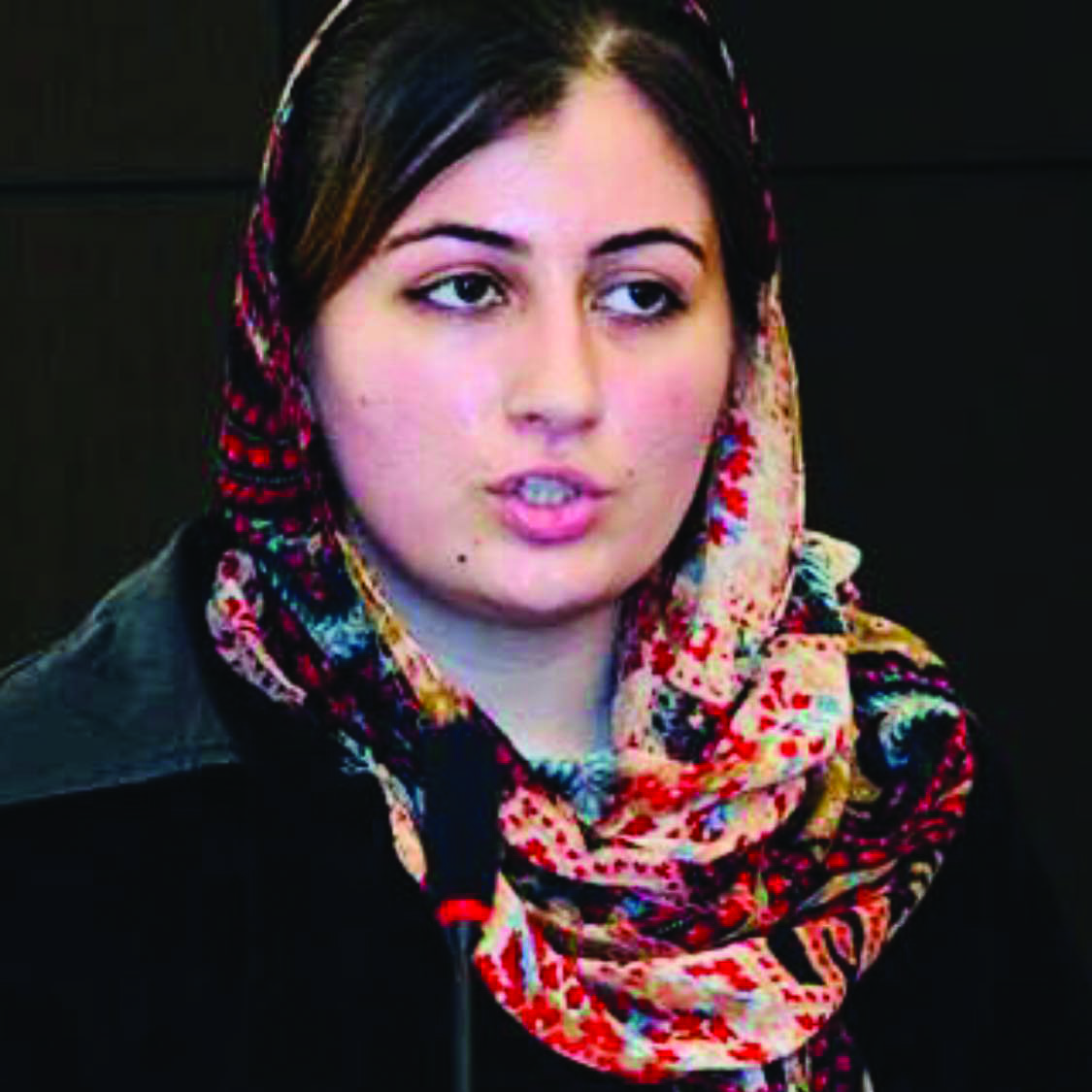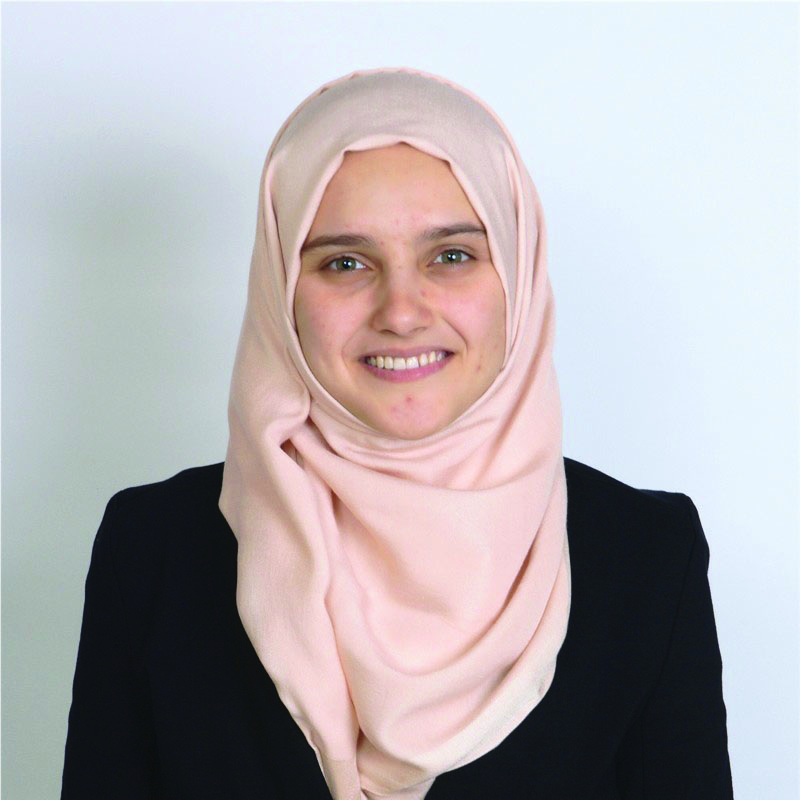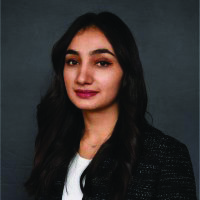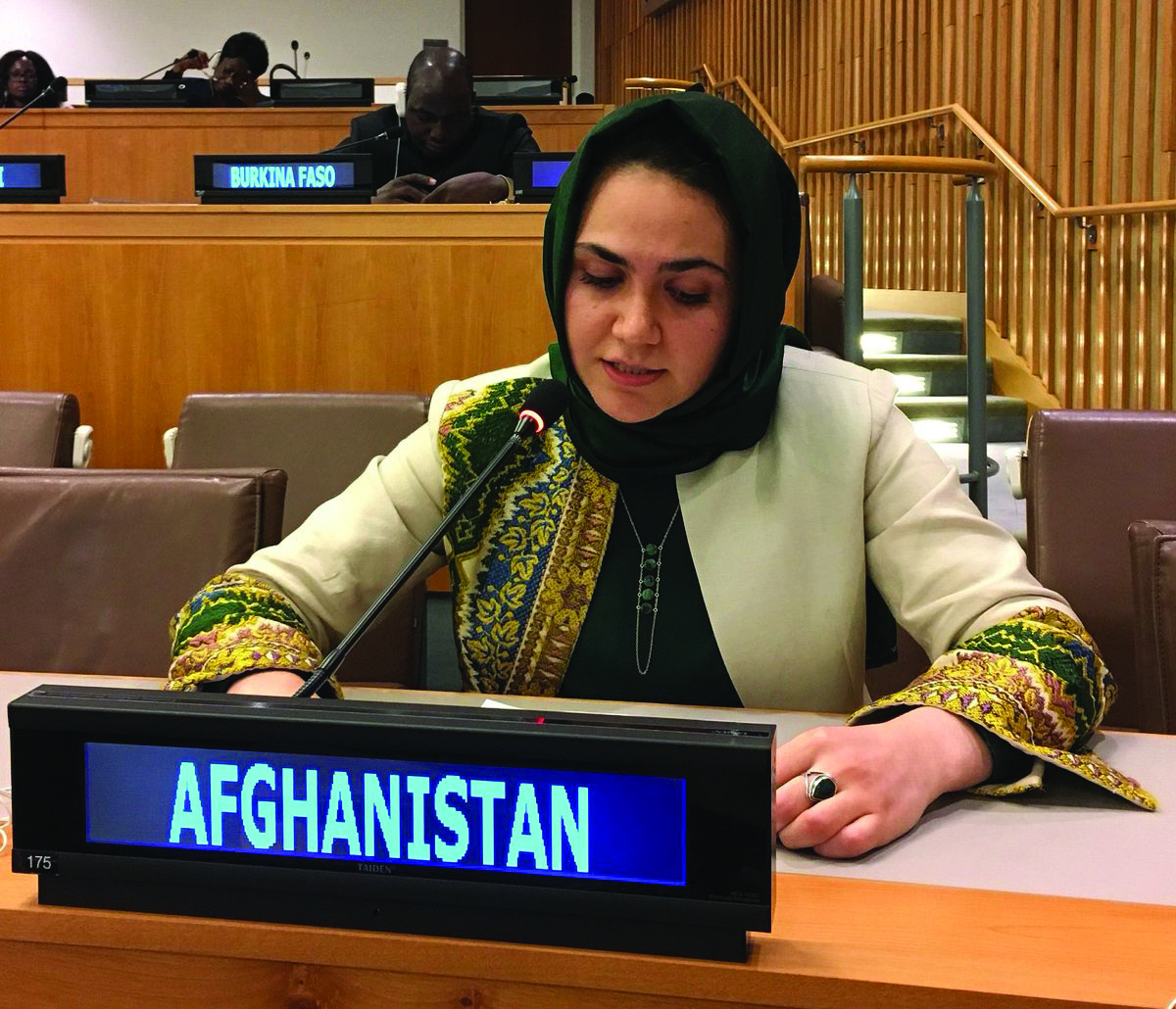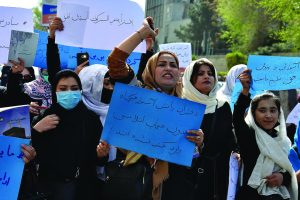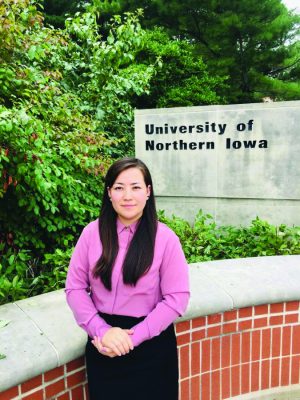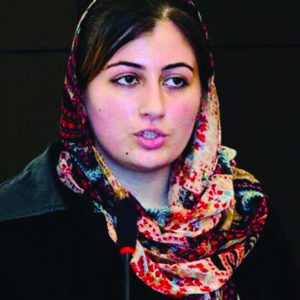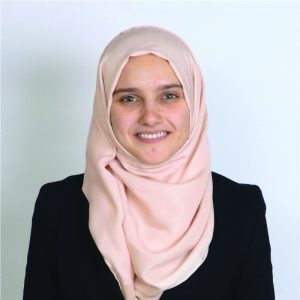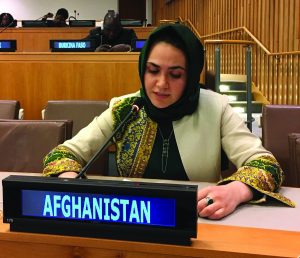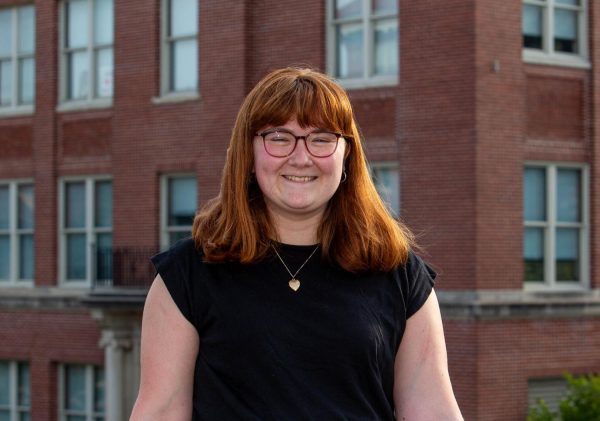Amplifying Afghan voices
Oct 30, 2022
UNI features five women for “Our Stories: Women in Afghanistan” panel
“Stories create community,” Interim Director of Women’s and Gender Studies Danielle Dick McGeough addressed to a diverse crowd on the afternoon of Oct. 27. The crowd, made up of community members young and old, gathered in Lang Hall Auditorium for the panel, “Our Stories: Women in Afghanistan.”
The event was sponsored by a variety of departments on campus, but was largely organized by the UNI Women’s and Gender Studies program. McGeough moderated the panel with a variety of questions before allowing audience members to ask questions at the conclusion of the event.
On the stage at the front of the auditorium, five women sat behind a long table. Hakima Afzaly, Hasina Jalal, Zamira Saidi, Zuhal Salim and Roquiya Sayeq traveled to Cedar Falls from different parts of the U.S. to share their stories of growing up in Afghanistan and their insight on the current state of women’s rights in Afghanistan.
To begin, each woman shared about themselves and their memories of their upbringing in Afghanistan.
Salim was less than one year old when the Afghan Civil War broke out in 1992, and was five years old when the Taliban came to power in 1996. She spent the following five years of her life living under a regime characterized by, as she said, “misogyny, torture, killing and overall violence.”
Under Taliban rule, girls were not allowed to attend school. Salim, like many of the other women on the panel, was fortunate in having parents who prioritized education.
She was homeschooled by her parents, and then was sent to secret homeschooling with other community members. It wasn’t until after the Sept. 11, 2001 attacks and the subsequent fall of the Taliban’s rule due to U.S. intervention that Salim was able to properly and legally attend school at the age of 11.
Sayeq, now a data scientist, also painted a vivid image of the very unique childhood experiences Afghan women have. “We would go to school or university, and on our way there would be an explosion, or there would be an attack,” she said.
Since their childhoods, each of the women on the panel have taken advantage of their opportunities for education and have become successful activists, scholars and entrepreneurs.
Jalal earned her master’s degree in women’s and gender studies from UNI in 2021. After graduating, she said she had already booked her flight to return to Afghanistan when the U.S. accelerated the withdrawal of its troops during the summer of 2021.
“That was when I made one of the most difficult decisions of my life, which was to continue to live here and not go back home when I could not see my family for two years because of COVID, of course, and because of the embassy being closed,” she said.
Following the U.S. withdrawal, the Taliban regained control of Afghanistan in August 2021. Since then, these women and the rest of the world have watched millions of Afghan women lose their rights and liberties in society.
Under Taliban rule, women are once again banned from getting an education. As Jalal pointed out, it has been over 400 days since girls have been allowed to go to school in Afghanistan.
Salim described further societal changes under Taliban rule.The Taliban abolished the Ministry of Women’s Affairs, which advocated for women’s rights and provided support for women undergoing domestic violence.
As a replacement, the Taliban established the Ministry of Propagation of Virtue and Prevention of Vice, which is responsible for imposing dress code and essentially acting as the morality police.
Dress codes have become much more strict. As the women on the panel said, the changes are not rooted in culture and are instead being used to control women. Women are now required to wear blue, all-covering burqas in public that have only small holes women can see through.
“That’s how they want women to see their world, just a few inches,” Salim said.
Despite newer challenges under the Taliban’s regained rule, centuries-old conflicts still define the lives of Afghans.
Afzaly largely grew up in Pakistan as her parents were refugees fleeing the persecution of Hazaras. Hazara is a minority ethnic group in Afghanistan that makes up 20% of the population. They are often targeted for their distinct facial features and their practice of Shiite Islam, while the majority of Afghans practice the Sunni tradition.
“Currently, a genocide is happening toward the Hazara community. We are being targeted in schools, maternity hospitals, in mosques, in wedding halls and in education centers just to name a few,” she said.
She recounted that about a month ago, a group of 50 Hazara students was killed in an attack while they were preparing for college entrance exams. Many of them were girls.
Despite the tragedy and trauma that has marked the lives of many Afghan women, the women on the panel expressed a hope for the future that can only be achieved through continued conversation about these experiences.
“Education is a necessity, not a luxury, and that is why it is a moral obligation of all of us to empathize with women of Afghanistan and keep amplifying their voices,” Afzaly said.
Saidi added, “Coming here and seeing all of these faces and your interest to be here and hear our stories, it was worth it.”
In terms of what the audience could do to help the situation, the women emphasized the importance of showing empathy for Afghans, listening to Afghan women instead of the media and educating oneself on the realities of the situation.
They also encouraged supporting Afghan immigrants financially through organizations and scholarships.
Lastly, Jalal pushed the audience to pay particular attention to the foreign policies of elected officials, and to use their vote accordingly.
“At the end of the day, human life is human life,” she said.


